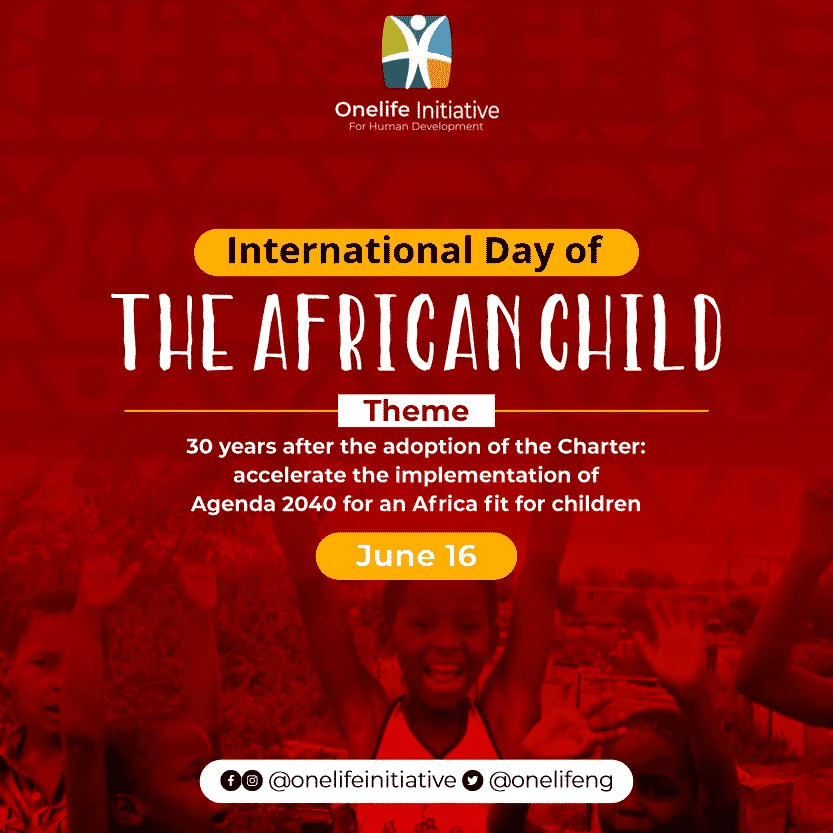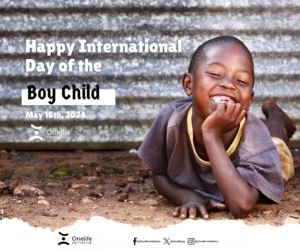2021 Day of the African Child: 30 Years After
Over 100 students were massacred in Soweto, South Africa, on the 16th of June 1976. This was for protesting against injustice in the educational system and inequality. The African Union thus in 1991 dedicated this day as a reminder. A day to continually reflect on the challenges children face daily and a reminder to emphasise the need for African children to claim their rights. The theme for this year was chosen to mark 30 years since the endorsement of the African Charter on the Rights and Welfare of the Child (ACERWC).

Agenda 2040 and Children
Working fervently to ensure that its goal is achieved, ACERWC established a 25-year Agenda in 2016 known as “Agenda 2040: Fostering an Africa Fit for Children”. This is a child-centered agenda. It is based on the African Union’s Agenda 2063 which envisions an integrated, prosperous and peaceful Africa, driven by its citizens, representing a dynamic force in the international arena.
With the African Child at heart, the agenda was established to revive the dignity of the African child by assessing the achievements and challenges faced in effective implementation of the African Children’s Charter. It was also to also establish long-term strategies that will contribute towards sustaining and protecting children’s rights in Africa.
Aspirations ahead of Year 2040
Children are no longer viewed as objects of concern and sympathy under the Children’s Charter. They are autonomous right holders. Although the rights of children, especially the girl child has been resisted by the patriarchal systems and traditional views, there has been a continued acceptance of the Charter and this has been complemented by the Maputo Protocol. Agenda 2040 sets out 10 aspirations to be achieved by the year 2040 —
Aspiration 1: The African Children’s Charter, as supervised by the African Children’s Committee, provides an effective continental framework for advancing children’s rights
Aspiration 2: An effective child-friendly national legislative, policy and institutional framework is in place in all member states
Aspiration 3: Every child’s birth and other vital statistics are registered
Aspiration 4: Every child survives and has a healthy childhood
Aspiration 5: Every child grows up well-nourished and with access to the basic necessities of life
Aspiration 6: Every child benefits fully from quality education
Aspiration 7: Every child is protected against violence, exploitation, neglect and abuse
Aspiration 8: Children benefit from a child-sensitive criminal system
Aspiration 9: Every child is free from the impact of armed conflicts and other disasters or emergency situations
Aspiration 10: African children’s views matter
What we can all do
Days like this serve as a reminder for everyone to make continuous efforts and contributions to protect and defend the rights of children. With the setback caused by the COVID-19 pandemic, we cannot afford to fold our arms towards the rights of children. Everyone has a role to play, the first step is to know these rights. Every child in Nigeria has rights that are to be protected. After this, we need to consider ways we can ensure children know and have access to these rights. Individuals, schools, companies, and organisations should put on their child lens in reviewing their activities to accommodate children’s rights in an equitable manner.
Situations, where children are victims of kidnap on a regular basis, call for deep worries. The government needs to do all to ensure the children kidnapped from the Islamic School in Tegina town and several other locations across the world are returned safely to their parents and provided the needed recovery support.



